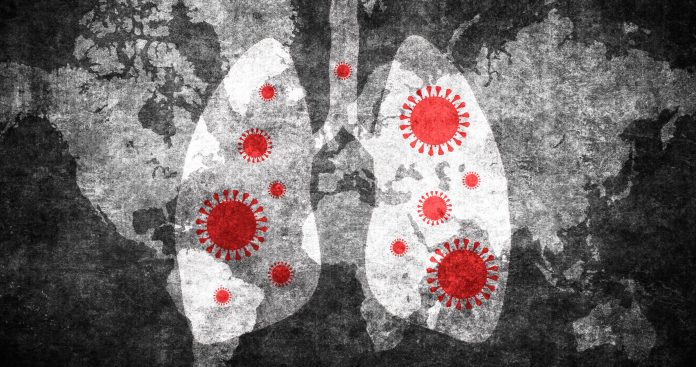
There’s new evidence the COVID-19 mRNA vaccines don’t provide much mucosal immunity, according to a team of French researchers. In a study that included more than 400 patients, there was some mucosal immunity provided by these vaccines, but previously infected people had a greater response. This suggests that new approaches, such as vaccines or adjuvants delivered to the respiratory system, may be needed to improve prevention efforts,
The French team writes that, “The findings of this cohort study suggest that mRNA vaccination was associated with mucosal immunity in individuals without prior SARS-CoV-2 infection, but at much lower levels than in previously infected individuals.”
The study was published in JAMA Network Open and the lead author is Guy Gorochov, MD, PhD, of the Sorbonne Université, Institut National de la Santé et de la Recherche Médicale (INSERM) in Paris.
Severe acute respiratory syndrome coronavirus 2 (SARS-CoV-2) is the virus that causes COVID-19. Two popular vaccines against it are the mRNA vaccines from Moderna (SPIKEVAX) and another from Pfizer-BioNTech.
These vaccines have had a huge effect, reducing infections by about 50% in some populations, particularly serious infections. But many people who’ve received the intramuscular SARS-CoV-2 mRNA vaccine still experience breakthrough infections, as evidenced by the continued spread of SARS-CoV-2 in highly vaccinated populations, especially with the emergence of new variants. The rate varies geographically, but for example, in New York in 2023, about 19% of vaccinated people experienced breakthrough infections.
Why this occurs is a major question. Studies using blood tests have shown that T and B cells induced by the vaccine provide some protection even against Omicron subvariants, which are particularly resistant to current vaccines. But there is still considerable controversy about the capacity of intramuscular messenger RNA (mRNA) vaccination to induce a mucosal immune response.
SARS-CoV-2’s first contact with the immune system is usually through the nasal passages, tonsils, and adenoids. Mucosal immune responses are production of secretory IgA antibodies in saliva, nasal fluid, tears, and other secretions within days of infection. Growing evidence suggests these responses limit the virus to the upper respiratory tract, resulting in asymptomatic infection or only mild disease. Evidence so far is that today’s injectable COVID-19 vaccines do not induce many antibodies in mucosal secretions of naïve subjects.
These researchers set out to compare serum and salivary IgG and IgA levels among mRNA-vaccinated individuals with or without previous SARS-CoV-2 infection. The team studied 427 vaccinated subjects. Using ultrasensitive digital enzyme-linked immunosorbent assay, they found a modest increase in spike-specific IgA levels in saliva of SARS-CoV-2–naive individuals who received the Moderna or Pfizer-BioNTech messenger RNA vaccines. This increase persisted after Moderna vaccination, and previously infected individuals demonstrated a stronger mucosal IgA response to vaccination.
Specific salivary IgA, they determined, can be detected after previously uninfected people receive messenger RNA vaccination, but previously infected individuals have a much higher response.













